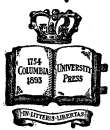أنت هنا
قراءة كتاب A History of Literary Criticism in the Renaissance With special reference to the influence of Italy in the formation and development of modern classicism
تنويه: تعرض هنا نبذة من اول ١٠ صفحات فقط من الكتاب الالكتروني، لقراءة الكتاب كاملا اضغط على الزر “اشتر الآن"

A History of Literary Criticism in the Renaissance With special reference to the influence of Italy in the formation and development of modern classicism
poetical images. This point was so emphasized by Renaissance critics that Berni, in his Dialogo contra i Poeti (1537), condemns the poets for speaking of God as Jupiter and of the saints as Mercury, Hercules, Bacchus, and for even having the audacity to call the prophets and the writers of the Scriptures poets and makers of verses.[9]
The fourteenth and fifteenth books of Boccaccio's treatise, De Genealogia Deorum, have been called "the first defence of poesy in honor of his own art by a poet of the modern world;" but Boccaccio's justification of imaginative literature is still primarily based on the usual mediæval grounds. The reality of poetry is dependent on its allegorical foundations; its moral teachings are to be sought in the hidden meanings discoverable beneath the literal expression; pagan poetry is defended for Christianity on the ground that the references to Greek and Roman gods and rituals are to be regarded only as symbolical truths. The poet's function, for Boccaccio, as for Dante and Petrarch, was to hide and obscure the actual truth behind a veil of beautiful fictions—veritatem rerum pulchris velaminibus adornare.[10]
The humanistic point of view, in regard to poetry, was of a more practical and far-reaching nature than that of the Middle Ages. The allegorical interpretation did indeed continue throughout the Renaissance, and Mantuan, for example, can only define a poem as a literary form which is bound by the stricter laws of metre, and which has its fundamental truths hidden under the literal expressions of the fable. For still later writers, this mode of regarding literature seemed to present the only loophole of escape from the moral objections to poetry. But in employing the old method, the humanists carried it far beyond its original application. Thus, Lionardo Bruni, in his De Studiis et Literis (c. 1405), after dwelling on the allegorical interpretation of the pagan myths, argues that when one reads the story of Æneas and Dido, he pays his tribute of admiration to the genius of the poet, but the matter itself is known to be fiction, and so leaves no moral impression.[11] By this Bruni means that fiction as such, when known to be fiction, can leave no moral impression, and secondly, that poetry is to be judged by the success of the artist, and not by the efficacy of the moralist. Similarly, Battista Guarino, in his De Ordine Docendi et Studendi (1459), says that we are not disturbed by the impieties, cruelties, horrors, which we find in poetry; we judge these things simply by their congruity with the characters and incidents described. In other words, "we criticise the artist, not the moralist."[12] This is a distinct attempt at the æsthetic appreciation of literature, but while such ideas are not uncommon about this time, they express isolated sentiments, rather than a doctrine strictly coördinated with an æsthetic theory of poetry.
The more strict defense of poetry was attempted for the most part on the grounds set forth by Horace in his Ars Poetica. At no period from the Augustan Age to the Renaissance does the Ars Poetica seem to have been entirely lost. It is mentioned or quoted, for example, by Isidore of Seville[13] in the sixth century, by John of Salisbury[14] in the twelfth century, and by Dante[15] in the fourteenth. Horace insists on the mingled instructiveness and pleasurableness of poetry; and beyond this, he points out the value of poetry as a civilizing factor in history, regarding the early poets as sages and prophets, and the inventors of arts and sciences:—
Did not, as poets feigned, tame savage beasts,
But men as lawless and as wild as they,
And first dissuaded them from rage and blood.
Thus when Amphion built the Theban wall,
They feigned the stones obeyed his magic lute;
Poets, the first instructors of mankind,
Brought all things to their proper native use;
Some they appropriated to the gods,
And some to public, some to private ends:
Promiscuous love by marriage was restrained,
Cities were built, and useful laws were made;
So ancient is the pedigree of verse,
And so divine the poet's function."[16]
This conception of the early poet's function was an old one. It is to be found in Aristophanes;[17] it runs through Renaissance criticism; and even in this very century, Shelley[18] speaks of poets as "the authors of language, and of music, of the dance, and architecture, and statuary, and painting," as "the institutors of laws, and the founders of civil society, and the inventors of the arts of life." To-day the idealist takes refuge in the same faith: "The tree of knowledge is of equal date with the tree of life; nor were even the tamer of horses, the worker in metals, or the sower, elder than those twin guardians of the soul,—the poet and the priest. Conscience and imagination were the pioneers who made earth habitable for the human spirit."[19]
It was this ethical and civilizing function of poetry which was first in the minds of the humanists. Action being the test of all studies,[20] poetry must stand or fall in proportion as it conduces to


